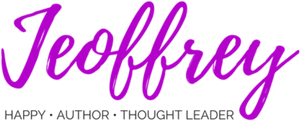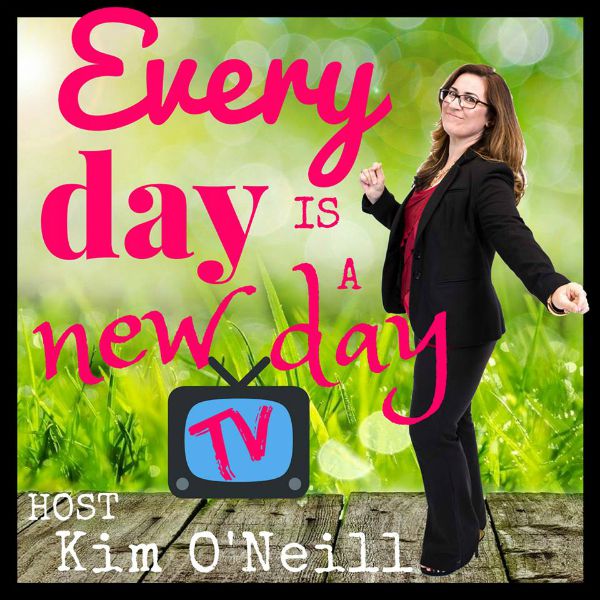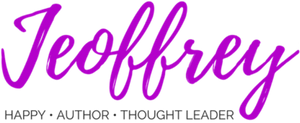Jeoffrey H: Yeah, and that’s absolutely on-point because when we’re talking like this, one of the things I like to share with people too is, “You ask a better quality question you get a better quality answer.”
Kim O’Niell: Yeah.
Jeoffrey H: “How can I do this?” What’s really fun too is because you’re bringing up a difference that I like to call, or a construct that I like to call, “Asking a question, and then questioning.”
How can I do this? How can I do this? With the tools that I have available to me right now, what’s the best way that I can do this and get this done? That’s asking a question and see if you’re open to the answer, you’re receptive to the answer because it feels exciting. How can I do this? I don’t have to figure everything out but where is the best place for me to start?
Then you’re inspired that way, whereas questioning … I don’t know if I’m ever going to get this done. This just seems so overwhelming. I don’t know what to do first. I can’t. This is too much, too fast. I’m not Oprah. I’m really not. I can’t. I can’t do this. I don’t know if I can … That’s the beating yourself up. That’s defeating the purpose. That’s questioning and taking yourself right out of the game. Whereas, understanding the feeling between the two. Asking a question is exciting. Questioning … you’re feeling your doubt.
Kim O’Niell: It really forces us to go back to the question. What do I really want? Because if what you really want actually can be stopped by … Oh, I can’t do this. Blah, blah, blah, blah, blah, blah, blah, blah, blah, blah, blah, blah, blah. Then maybe you don’t really want that. You can also just ask. What do I really want? Do I really want that? How does this place serve me right now, if it doesn’t what’s that other question I can ask? What’s a more powerful question I can ask.
Jeoffrey H: Yeah, so as we’re going along this path of really understanding and asking the questions that we are putting forth within our lives, then it becomes the point of …what does my soul most want to experience next? And then having that center of really understanding how we make this up. It’s our wonderful human dynamic, and I’m going to give you something very simplistic here.
People live their lives by their judgment, and people will sometimes say, “Judgment is a bad thing.” It’s not. “Jeoff, how can I live a life judgment free?”
Well, it’s very simple, and I’ll give it to you right here. It’s three steps. The first step is to just look at everything, and see everything as it is. Just see with the eyes of a child. Okay? To see things happening and don’t make up any story about what’s going on there. That’s number two. Don’t make up a story about what you’re observing. Oh, that person just won such and such in the lottery, they must be a great person, blah, blah, blah.
No, that’s just something that happened. That’s there. Now if you can do those two things. See things as they are. Don’t create a story in what you’re seeing. Number three is a walk in the park because now there’s no judgment in what you’re observing. If you have no judgment, guess what? You’re not giving it a charge to either take you off your game, or put you even more so on your game. You’re in control of how you feel and how you move about life, and you’re totally in that space of receptivity.
Everything’s calm. Everything’s cool, and things can be chaotic but you’re still the peace within the storm.
Kim O’Niell: Mm-hmm (affirmative). I have come to … A belief that I hold is that every derivative of statement is a belief of some sort. Just as you were saying. People say that judgment is bad. That’s a belief. People say that winning the lottery is … People could say that winning the lottery is, “Oh, that’s bad. You don’t want that because bad things are to come.” Or, “That person now that they won the lottery. Oh, well they didn’t give me any money. Oh, they’re just so selfish and greedy, and they’re just stuck in their own world.”
So many stories we can make about every single thing. Even see it as it is. I think they don’t even know they automatically attach a story to it. They don’t realize that seeing something, and what they instantly believe about it, there’s an attachment there too.
Jeoffrey H: Yeah. Right, and see the way that we go about our lives and telling our story or even having that belief because again, a belief is just a thought you keep thinking. Because if someone tells you that I am a terrible hugger okay, and you haven’t had a hug from me to know the difference, then depending on how much you let that person influence you, then that will become a truth for you.
Until you get into my arms, and then you know the difference. Then you have your direct experience. Then you will know that that other person was full of shit. That is the point of having your own direct knowing. No one can take that away from you. A belief you’ll change in a heartbeat because you have no direct reference. With what life you’ve created and what someone says at that moment when you hear it, and you do that … “Well that makes sense.”
Then you’ll change your belief like that, but if you have a direct knowing. This is going to be like, No, I don’t know. You’re really … You really have no idea. Did you get a hug from Jeff? Did you get a hug?
“No, no.”
Then don’t even. You have no reference but I’ve gotten a hug, so I know that’s not true for me. It’s really taking that time and understanding that yeah, you are creating your life every step of the way and it’s totally up to you, and following that yes. Following that bliss. Man, that’s life’s sweetest kiss right there. Really, I’m not trying to get all seussical on you here, but it was just … It really is, when you feel how scrumptious how life can be in one moment of just enjoying who you are.
Kim O’Niell: Yeah.
Jeoffrey H: Let me share this with you. I had a moment last night with a friend I hadn’t seen in a while, and he brought his daughter out to see me. He had just brought her back from gymnastics and whatever, so we were meeting at this little restaurant, and just hanging out for a little bit.
It just so happens that I was wearing this particular sweater on the day that his daughter was born, nine years ago.
Kim O’Niell: I saw that. Yes.
Jeoffrey H: Yes. Yes. You saw that.
Kim O’Niell: Yeah.
Jeoffrey H: It was that moment right there,that we’re sitting there talking and I’m looking at her, and he shows me the baby picture and I’m like, “Dude. We got to do this. I’m wearing the same sweater.” I’m like, “Come here. Come here.” And she was so willing. She was just so willing to do that with me, and again, you saw the picture and it was just like … That right there was just kind of a full circle type of moment of going, “Wow.”
I was reminded by how much I love my friend.
Kim O’Niell: Aw.
Jeoffrey H: I was reminded of how much I appreciated, and loved my goddaughter or however they define or say, “Uncle Jeff.” Or whatever they call me. Whatever she calls me. I’m totally cool with that, and it was the affirmation of life of … This is why I came here. I forgot how much I loved you, and I really appreciate how much I love to love you.
It was that type of feeling and moment that was just so beautiful. So I’m glad you saw that picture.
Kim O’Niell: Yeah.
Jeoffrey H: That you can get that too, because this is what life can be about. When we are creating art, that’s the one thing that we don’t really judge too harshly because it’s someone else’s expression and we go, “Well, that’s just their expression and it’s not exactly what I would do, but hey they’re free to express as they are.”
That is the beauty of who we are right here, and if we can do that in music, and if we can do that and actually … A visual medium of art, then how come we don’t do it everywhere else, because everywhere we look is a visual expression of artistic life.
Kim O’Niell: Yeah. Anything we hear from anybody else is always being filtered through that persons own life experiences. When they say, “Take everything with a grain of salt.” That’s kind of the salt.” You know, right?
Jeoffrey H: Yeah. Yeah.



